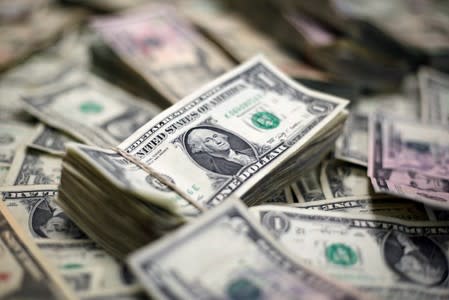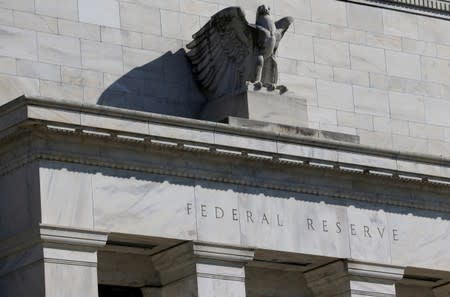In This Article:
By Hari Kishan and Rahul Karunakar
BENGALURU (Reuters) - Group of 10 currencies will be driven by the U.S.-China trade war and actions by the U.S. Federal Reserve in coming months, while economic developments in other parts of the world are likely to take second stage, a Reuters poll found.
The greenback is expected to maintain its position of strength this year as investors continue to flock into dollar-denominated assets, which are currently outperforming, as trade uncertainty tends to favors them.
The dollar index <.DXY> has held its ground and is up over 2% this year, despite one Fed rate cut and expectations for more. (World FX rates this year: http://fingfx.thomsonreuters.com/gfx/rngs/GLOBAL-CURRENCIES-PERFORMANCE/0100301V041/index.html )
But narrowing interest rate differentials, along with the view that the dollar's strength may be overdone, had the Aug. 29-Sept.4 poll of 80 foreign exchange strategists showing most major currencies will have clawed their way back and gained against the dollar a year from now.
Still, nearly two-thirds of 48 analysts who answered a separate question said the risks to their dollar outlook was skewed more to the upside, suggesting the greenback is still the most preferred currency.
"The recent escalation in the trade war between the U.S. and China is a dollar positive story. We are relatively pessimistic and feel we are unlikely to get a trade deal before the end of this year, which should keep the dollar well bid," said Lee Hardman, currency analyst at MUFG in London.
"Unless we see a more aggressive Fed rate cut cycle in response to recession fears in the U.S., it is difficult to see in the near-term what will trigger a sustainable reversal of the strong dollar trend that has been in place for the last couple of years."
While a slim majority - 28 of 50 analysts - said G10 currency moves would mostly be driven by what happens in the year-long U.S.-China trade war, over a third expected U.S. dollar moves based on actions from the Fed would dominate FX trades for the remainder of the year.
Currency speculators cut their bets in favor of the dollar in the latest week to the lowest level since June 2018 but were still net long on the dollar, according to data from the U.S. Commodity Futures Trading Commission.
"The favoritism toward U.S. assets is huge. Treasuries are still fairly high yielding relative to sovereign debt of other countries. Yes, it (dollar) might be an overcrowded trade but it is an overcrowded trade for a reason," said James Orlando, senior economist at TD Economics in Toronto.



